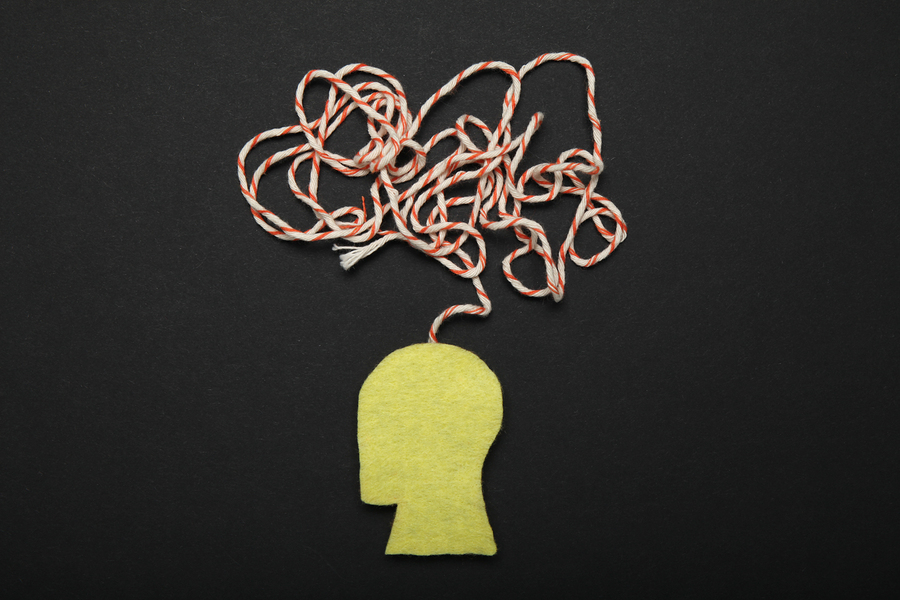Advice
Understanding OCD: It doesn't just mean you're a neat freak.
By: Shauna Gavin
Updated: 03 February 2020

Often in popular culture, obsessive compulsive disorder is passed off as a funny personality trait that makes someone the butt of the joke. The likes of Monica Geller from Friends is a prime example of this. She is portrayed as the classic OCD neat freak which is very misleading and unrepresentative of what the disorder is actually like. While some may be like this, most of those who have OCD would agree that it is a lot more distressing and a lot less quirky than Monica’s character would lead you to believe. The obsessive thoughts that circle around and around in someone’s head can verge on terrifying and violent. These scary obsessions are what feed the compulsions which can manifest in strange behavioural patterns that barely even make sense to those experiencing them.
Lightswitch on, off, on, off, on, off. Turn the door handle five times to make sure it’s closed properly. Get out of bed on one particular side every morning or else something bad is bound to happen that day. These are what people with OCD would describe as rituals. They are the obsessive compulsions that make up the disorder’s name. Even the old saying ‘step on a crack, break your mother’s back’ is a prime example of a ritual behaviour that would be performed in order to prevent what the ‘magical thought’ demands of them. When looked at objectively, these magical thoughts seem absurd and illogical even to those who suffer with them, yet they hold so much power over the person with OCD.
Magical thoughts can manifest in a variety of ways. They act as a way to control the overwhelming anxiety that the person with OCD deals with. To a person with OCD, their magical thinking makes them feel like they have a huge sense of responsibility to stop bad things from happening and that the rituals are what they do to ensure peace of mind by reestablishing control. To suffer from anxiety in general can be quite distressing but this particular form of it comes with a whole array of extra self imposed responsibilities which can be exhausting. Most people who have OCD will realise that their thoughts are irrational but will keep performing their rituals to alleviate the anxiety it causes which reinforces their OCD.
Thankfully, those who live with OCD can be treated as the rituals that the person learned can be unlearned. Cognitive Behavioural Therapy (CBT) is an excellent way of decoding your behaviour and learning how to change negative thought patterns. Alternatively, psychotherapy can help by looking at the underlying issues that are causing the person's fear response to be triggered to this level of compulsion. Another method would be medication if recommended by medical professionals.
OCD has long been passed off as a trivial thing by many who do not fully understand the severity of the disorder. Its name gets thrown around and associated with narky people who like their houses to look a certain way and get angry when it doesn’t and use their ‘OCD’ as an excuse to justify their behaviour. This perception can be understandably frustrating for people who genuinely suffer with the disorder and can make it seem less serious than it actually is. The kooky character of Monica from Friends is what many people would consider to be a classic case of OCD. However, perhaps the jokes made at Monica’s disorder’s expense would not be so funny if the viewer could see or hear exactly what was going through her head.
MENTAL HEALTH PROFESSIONALS WORKING WITH Obsessive Compulsive Disorder ISSUES:
Approach: Humanistic & Integrative Psychotherapy , Mindfulness , Other , Solution-Focused Brief Therapy , Person-Centred Therapy
Works with: Individual Session , Online Session
Specialities: Anxiety , Bereavement / Loss , Depression , Fertility , Neurodiversity , Obsessive Compulsive Disorder , Relationship issues , Self-Esteem , Stress , Suicidal Ideation / Self Harm , Trauma
Next avaialble appointment: 9:00 01 March 2025
Approach: Humanistic & Integrative Psychotherapy , Mindfulness , Person-Centred Therapy
Works with: Individual Session , Children & Adolescents , Couples
Specialities: Addiction , Anger , Anxiety , Bereavement / Loss , Domestic Violence / Abuse , Eating Disorder / Body Image , Fertility , Isolation / Loneliness , Obsessive Compulsive Disorder , Personal Development , Personality disorder , Relationship issues , Self Care , Self-Esteem , Sexuality (LGBTQIA+) , Suicidal Ideation / Self Harm , Trauma , Work Issues, Work/Life balance
Next avaialble appointment: 13:00 24 February 2025
Approach: Solution-Focused Brief Therapy , Systemic & Family Therapy , Mindfulness , Psychodynamic Therapy , Person-Centred Therapy , Humanistic & Integrative Psychotherapy , Gestalt Therapy , Psychoanalytic Psychotherapy , Cognitive Behavioural Therapy (CBT)
Works with: Individual Session
Specialities: Anger , Anxiety , Bereavement / Loss , Communication Issues , Depression , LGBT , Obsessive Compulsive Disorder , Relationship issues , Self Care , Self-Esteem , Stress , Trauma , Work Issues, Work/Life balance , Other
Next avaialble appointment: 19:00 24 February 2025
Search
Get The Support You Need
From One Of Our Counselors
News
Isolation
Anxiety
Depression
Relationship Issues
Counselling
Personality Disorder
Addiction
Trauma
Children and Adolescent
Anger
Bereavement
Chronic Illness
Communication Issues
Eating Disorder
Post natal depression
Stress
LGBTQI+
Panic Attack
OCD
Resilience
Parental support
Men's Mental Health
Category List
All Posts
News
Isolation
Anxiety
Depression
Relationship Issues
Counselling
Personality Disorder
Addiction
Trauma
Children and Adolescent
Anger
Bereavement
Chronic Illness
Communication Issues
Eating Disorder
Post natal depression
Stress
LGBTQI+
Panic Attack
OCD
Resilience
Parental support
Men's Mental Health

